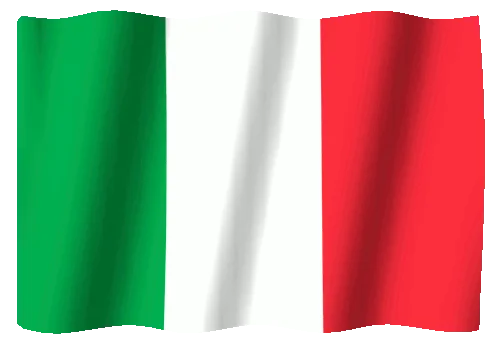- Magic Of Coffee
- Coffee is more than a beverage; it’s a global phenomenon that unites cultures, fuels creativity, and sparks conversations. From Italian espresso bars to Ethiopian coffee ceremonies, each cup tells a story. Whether enjoyed as a morning ritual or a social tradition, coffee connects people across continents, transcending borders and time.
- Coffee transcends borders, connecting people through its rich aroma and diverse flavors. From bustling cafés in Paris to street-side stalls in India, it fuels creativity, conversation, and culture. A symbol of hospitality and energy, coffee has evolved into an essential ritual, shaping global traditions and modern lifestyles across continents.
A cup of coffee is more than just a drink; it’s a ritual, a passion, and a moment of pure indulgence
The origins of coffee trace back to Ethiopia, where legend tells of a goat herder named Kaldi who discovered the energizing effects of coffee beans. By the 15th century, coffee spread to the Arabian Peninsula, particularly in Yemen, where Sufi monks used it for spiritual stimulation. The first coffeehouses emerged in the Middle East, becoming centers of conversation and culture.
By the 17th century, coffee reached Europe, where it gained immense popularity despite initial resistance. Colonial expansion led to coffee plantations across the Americas, Asia, and Africa. Today, coffee is a global phenomenon.Over time, coffee evolved into a social ritual, fueling intellectual gatherings and business meetings making it an indispensable part of modern life.
Types of Coffee Beans

.
Arabica
Smooth, mild, and aromatic. The top producers include:
1. Brazil – The largest Arabica producer, known for its mild and balanced beans.
2. Colombia – Famous for its rich, well-balanced coffee with mild acidity.
3. Ethiopia – The birthplace of coffee, offering unique floral and fruity flavors.
4. Costa Rica – Renowned for its bright acidity and complex taste.
5. Guatemala – Produces full-bodied, chocolatey coffee with citrus notes.

.
Liberica
Rare, fruity, and floral.
Major producers include:
1. Vietnam – The largest Robusta producer, known for its strong, earthy coffee.
2. Brazil – Also grows Robusta, mainly for blends and instant coffee.
3. Indonesia – Produces deep, smoky, and full-bodied Robusta beans.
4. India – Known for its high-quality Robusta with a rich, chocolaty profile.
5. Uganda – A major African producer, famous for its strong and bold coffee.

.
Robusta
Strong, bold, and higher in caffeine.
Most producer countries:
1. Philippines – One of the main Liberica producers, locally known as "Barako coffee."
2. Malaysia – Produces Liberica with a unique fruity and floral taste.
3. Indonesia – Grows Liberica in small quantities, mainly for domestic use.
4. Liberia – Native to this region, though cultivation is limited.

.
Excelsa
Unique, tart, and full-bodied.
Most producer Countries:
1. Vietnam – The largest producer of Excelsa, often used in blends.
2. Philippines – Grows Excelsa, adding depth to local coffee varieties.
3. Thailand – Produces Excelsa in small quantities for specialty markets.
4. Malaysia – Cultivates Excelsa alongside Liberica for unique regional flavors.
Coffee Brewing Methods
- Espresso
The foundation of many coffee drinks.
Espresso is made by forcing hot water through finely-ground coffee under high pressure, extracting a rich, concentrated shot with a golden crema. Freshly roasted beans are ground finely, tamped firmly, and brewed at around 90-96°C for 25-30 seconds. It can be enjoyed black or with milk for variations like cappuccino, latte, or macchiato.
- French Press
Rich and full-bodied
French press coffee is made by steeping coarsely ground coffee in hot water for about 4 minutes before pressing down a metal or mesh plunger to separate the grounds. This method extracts rich flavors and natural oils, creating a bold, full-bodied brew. It can be enjoyed black or with milk for added creaminess.
- Pour Over
Clean and smooth flavor
Pour-over coffee is made by slowly pouring hot water over freshly ground coffee in a filter, allowing it to drip into a carafe or cup. This method highlights intricate flavors and aromas, creating a clean, smooth, and balanced brew. It can be enjoyed black or with milk for added richness.
- Cold Brew
Less acidic, smoother taste
Cold brew coffee is made by steeping coarsely ground coffee in cold water for 12 to 24 hours, resulting in a smooth, less acidic, and naturally sweet flavor. Served chilled over ice, it can be enjoyed black, with milk, or sweetened for a refreshing and rich coffee experience.
- Turkish Coffee
Strong and unfiltered
Turkish coffee is prepared using finely ground coffee beans, simmered in a special pot called a cezve with water and optional sugar. The unfiltered brew is poured into a small cup, allowing the grounds to settle. It has a strong, rich flavor and is often served with sweet treats like Turkish delight.
iconic coffee beverages:
Espresso, Cappuccino, Italy

Café au Lait, coffee France

Turkish Coffee, Turkey

Frappe coffee, Greece
